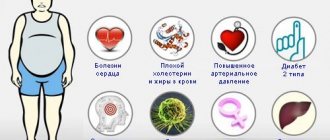Stress is the body's reaction to a potential threat, which may be associated with physical and psychological factors. Learn about the role of cortisol in stress and how to reduce cortisol.
Cortisol is one of the hormones produced by the adrenal cortex. It is involved in many metabolic processes, for example, helping regulate blood pressure and blood sugar levels. In addition, it plays a role in the process of waking up after sleep. When you wake up, hormone levels rise, peaking after 30 minutes, and then gradually decline throughout the day.
What are circadian rhythms and how to use them to get enough sleep
Cortisol is also called the "stress hormone." When your body senses a threat, physical or psychological, your brain sends a signal to your adrenal glands and they respond by releasing cortisol. Thanks to this hormone, concentration improves, blood circulation and glucose synthesis increase - this helps the body release additional energy to more effectively overcome stress.
Despite the benefits of cortisol, frequent or prolonged increases in cortisol levels can be harmful to the body. For example, chronic stress causes cortisol dysfunction, which leads to inflammation, depression and accelerated cellular aging. It is also associated with the development of osteoporosis, muscular dystrophy and decreased antitumor immunity.
Why cancer develops: 13 main risk factors
Chronic stress results from repeated exposure to situations that lead to the release of stress hormones, including cortisol.
We've rounded up nine science-backed ways to naturally reduce cortisol and manage stress. This way, your body will be less likely to experience a state of mobilization to eliminate a potential threat.
This article is for educational and informational purposes only and should not be used for diagnosis or treatment or as a substitute for professional advice.
Identify stress triggers
A threat to life or a change in environment are stimuli that provoke anxiety and can become a trigger or stressor. Such irritants include physical pain, problems in relationships or at work, and financial difficulties. It is, of course, impossible to predict when you will hit your foot on a chair. But some types of triggers can be learned to recognize.
5 reasons why health and well-being depend on love
One of the first steps to relieve stress is to understand what causes it. I don’t want to remember or think about unpleasant situations again. But a stress diary will help you recognize irritants so you can learn to react less to them. It is not necessary to remember all the details of an unpleasant event - it is enough to write down the fact and try to analyze why what happened caused you a negative reaction.
Using a stress diary can help you find practical ways to deal with these situations. For example, avoid quarrels, learn to build personal boundaries in relationships and at work, and say “no” in time. Moreover, you will be able to identify hidden causes of stress such as hanging on social networks.
Learn to recognize thoughts that cause stress
Thinking about negative and traumatic events is a trigger for the synthesis of cortisol. British scientists conducted a study in which participants wrote down their most negative memories for 20 minutes over three days. The results showed that it caused high cortisol levels in participants. Scientists link this to long-term consequences for the entire body.
The scientific community also highlights the role of worry and dwelling on negative thoughts in stress levels. It has been proven that negative thinking not only increases cortisol levels, but also has a negative effect on the production of oxytocin, a hormone that calms the nervous system.
Mental practice or mindfulness is one way to combat negative thinking and helps reduce cortisol levels. Hungarian scientists conducted a meta-analysis of ten studies on the connection between meditation and stress hormone levels. The results showed that meditation has a positive effect on people living in stressful conditions, but especially on patients with depression and post-traumatic stress disorder.
Reduced cortisol in women
Low cortisol in a woman’s blood can be a consequence not only of any diseases, but also of exposure to unfavorable external factors. Thus, a lack of this hormonal substance may indicate the development of:
- hypotension;
- stomach disorders or dangerous gastrointestinal pathologies;
- adrenal insufficiency;
- infectious diseases, including STDs;
- adrenal tumors;
- muscle atony.
Also, the fact that cortisol is low in women may be a consequence of hypofunction of the thyroid gland. But other diseases of this organ can lead to a sharp decrease in the levels of this hormone.
Taking steroid hormonal drugs may well lower the concentration of cortisol in the blood. But this is a temporary phenomenon that goes away on its own when the medication is discontinued.
Clinical manifestations
Symptoms of low cortisol in women manifest themselves through the occurrence of:
- apathy;
- causeless anxiety;
- groundless fear.
Also a characteristic symptom of decreased cortisol levels in women is hair loss and loss of sexual desire. But such anomalies are not observed in everyone, so they can be attributed to indirect signs of hypocortisolism.
When the concentration of a hormonal substance decreases, the menstrual cycle also suffers. Menstruation becomes scanty, comes with a significant delay, or does not come at all. Low cortisol levels in women also negatively affect the possibility of conception, so it is better to address the issue of treatment as soon as possible.
You can recognize a decrease in the concentration of a hormonal substance yourself if you pay attention to the presence of one specific sign. Even before the appearance of pronounced symptoms, the patient has an obsessive desire to eat something sweet. This is one of the first signals that a woman has low cortisol.
At the same time, the thirst for sweets is accompanied by increased contractions of the heart muscle and disruptions in heart rhythm.
This is one of the first signals that a woman has low cortisol. At the same time, the thirst for sweets is accompanied by increased contractions of the heart muscle and disturbances in the heart rhythm.
How to normalize indicators?
How to normalize cortisol levels in women, and is it really possible to do this at home? First of all, it is important to find out the cause of the deviation and eliminate it. Otherwise, symptomatic therapy will only provide positive results temporarily. Patients are often prescribed hormone replacement therapy to treat hypocortisolism.
It is based on taking medications such as corticosteroids
Patients are often prescribed hormone replacement therapy to treat hypocortisolism. It is based on taking medications such as corticosteroids
When undergoing a course of treatment, it is important to strictly follow all the recommendations of the attending physician.
You cannot adjust the dosage of medications on your own. If you feel unwell, you must inform your doctor. You may need to change the drug or stop taking it completely.
Alternative medicine
How to increase cortisol in women with folk remedies? If the problem is not too significant, methods of combating the deviation using alternative medicine recipes will be very effective. Here are some of them.
- Alcohol tincture based on snowdrop. To prepare it, you need to pour ½ liter of vodka into 20 snowdrop flowers and leave in a dark place for a month and a half. Strain and take 20 drops of medicine daily. Take before meals.
- Horsetail decoction. To prepare it, you need to brew a small amount of dry herb with a glass of boiling water according to the principle of preparing ordinary tea. When the medicine has cooled, it must be filtered and drunk in one dose, 15 minutes before meals. Take the product three times a day.
Such simple recipes are very effective in situations where cortisol in women is quite low. This is not only symptomatic therapy - such drugs are effective even for congenital or acquired adrenal insufficiency. But if the treatment does not produce the expected results, you should not hesitate to visit a doctor in order to prevent the occurrence of serious and dangerous consequences!
Pay attention to the quality of your sleep
It is easier for a person who has had a good night's sleep to cope with the effects of stress and unpleasant situations. The quality and duration of your sleep depends largely on your circadian rhythms and habits. What time you go to bed and wake up also plays a role. Research shows that people who work night shifts and sleep during the day are more likely to have elevated cortisol levels.
How to fix your biological clock so you can sleep well and get enough sleep
Shift work before age 40 is associated with higher body mass index (BMI) and higher cortisol levels.
Cortisol may be elevated due to lack of sleep or insomnia, especially in the evening after lack of sleep. The hypothalamic-pituitary-adrenal system is responsible for the production of cortisol. When a threat to the body appears, the hypothalamus part of the brain synthesizes special substances that are sent to the pituitary gland. This in turn sends a signal to the adrenal glands. In response, the adrenal cortex produces cortisol, some of which returns to the brain, affecting thinking processes. This relationship between the brain and the kidneys is called the hypothalamic-pituitary-adrenal axis.
The hypothalamic-pituitary-adrenal axis is also responsible for regulating sleep cycles. The axis can be activated by stress, illness or poor nutrition. This can subsequently impair your sleep and increase cortisol.
Sleep hygiene is one of the decisive factors in its quality. Try to create conditions in which the amount of noise and light is minimal. Thick curtains, an eye mask, and earplugs will help with this. We wrote about this in detail in this article.
6 ways to improve your sleep patterns and overcome insomnia
Tips for improving sleep quality to reduce cortisol levels:
- Try to go to bed and wake up at the same time
- Wash bedding and sleepwear regularly - a fresh smell helps the body relax
- Try not to use devices that emit blue light (TV, phone, tablet) 2-3 hours before bedtime
- Avoid caffeinated drinks in the afternoon
- Avoid excessive strength and cardio exercises two hours before bed.
Possible deviations from the norm and their causes
A physiological phenomenon is considered to be an increase in the level of cortisol in the body of women during pregnancy, as well as during fasting, nervous shock, injury, surgery, or physical exhaustion. After the cause of stress is eliminated, the hormone level in the blood returns to normal.
Any other long-term disturbances in cortisol production are pathological and indicate the presence of some disease. In order to maintain health, it is necessary to take measures to normalize the level of this hormone in the body.
Norms for women of different ages
| Categories of women | Normal cortisol content, nmol/l |
| Teenagers 12-15 years old | 83-580 |
| Women aged 16-45 years | 138-635 |
| Women of menopausal age | About 138 |
| Pregnant women | Up to 1200-2100 |
Cortisol is elevated
A pathological increase in cortisol levels leads to a general hormonal imbalance in women, disruption of the menstrual cycle, and even a complete cessation of menstruation (amenorrhea). The consequence of prolonged and significant excess of the norm is Itsenko-Cushing syndrome. This condition is characterized by fat deposits on the face (moon face), neck, chest and abdomen. At the same time, the limbs remain thin. Bone fragility increases, muscles weaken, dark red stripes appear on the skin.
The cause of an unusual increase in cortisol levels is the formation of benign or malignant tumors of the adrenal glands, diseases of the ovaries (for example, polycystic disease), the thyroid gland and other organs that produce hormones. Cortisol production is regulated by the hypothalamic-pituitary region of the brain through adrenocorticotropic hormone (ACTH). Therefore, one of the reasons for the occurrence of a pathological excess of cortisol may be a tumor or inflammatory disease in this area.
Long-term use of hormonal drugs and narcotic drugs may be unfavorable factors. Such a pathology may be one of the symptoms of AIDS and liver cirrhosis. Diabetes mellitus acts both as a provoking factor and as a consequence of exceeding the norm of cortisol. Excessive accumulation of glucose (blood sugar) occurs when stress lasts for a long time (for example, a woman is depressed due to the loss of a loved one).
To cope with stress, many instinctively begin to “eat up” troubles with sweets (under the influence of the same hormone cortisol). This leads to uncontrolled weight gain. Typical symptoms of elevated cortisol levels are obesity, hypertension, heart disease, irregular periods, metabolic and digestive disorders, increased anxiety, insomnia, and headaches.
Cortisol is reduced
The reason for low levels of this hormone is adrenal insufficiency, that is, their inability to maintain normal blood sugar levels. Moreover, any stress can lead to a critical lack of cortisol. It is not possible to replenish the supply of glucose by breaking down proteins and fats, since there is not enough energy to carry out this process.
This leads to the fact that when a stressful situation occurs, consciousness is inhibited, the person becomes lost, becomes helpless, reactions slow down, and weakness sets in. The consequence of a lack of cortisol in the body is the occurrence of hypoglycemia and a life-threatening coma.
When the hormone level is low, a woman experiences constant fatigue, inhibited thinking, decreased blood pressure, irritability, loss of attention and performance, and trembling fingers. A craving for sweets appears. Drinking coffee with a lot of sugar helps improve the condition for a short time, but then it gets worse again. Body weight increases due to high consumption of carbohydrates and overeating. At the same time, the level of insulin in the blood increases, which can convert glucose into fats.
Low cortisol levels occur in liver diseases (hepatitis), when there is a lack of glycogen. The cause of a pathological decrease in cortisol production in the adrenal glands (Addison's disease) may be hypopituitarism, a disease of the pituitary gland in which the production of hormones that stimulate the functioning of other endocrine organs is disrupted.
Adrenal insufficiency can be congenital. The cause of the pathology is anorexia, exhaustion of the nervous system.
The occurrence of deviations in hormone levels from the norm (both up and down) is often caused by smoking, excessive drinking, and depression.
Exercise regularly
Exercise can either increase or decrease cortisol levels, depending on the duration and intensity of the exercise. Despite the benefits of playing sports, it is still a burden and stress for the body. Therefore, as a result of intense exercise, cortisol usually rises briefly, but then falls at night.
At the same time, moderate-intensity exercise does not lead to an increase in stress hormone levels. Like intense exercise, moderate exercise is associated with decreased nighttime cortisol levels.
How exercise improves microbiota
Regular exercise can help control cortisol levels. And in addition to reducing the stress hormone, sport has a good effect on the microbiota. But it's best to avoid strenuous evening workouts that will keep you awake. Physical activity isn't just good for your body—many doctors recommend it for improving your mental health, too.
Diagnostics
If you observe disturbances in your own body and feel the symptoms described above, you should urgently consult an endocrinologist. Having fully studied your condition, you will be prescribed tests that can detect the level of cortisol in the blood and disturbances in the functioning of thyroid and adrenal hormones.
Identifying the true cause can be a little problematic, because very often an imbalance in hormone production can be a secondary symptom of other, more serious diseases.
The blood test must be performed in the morning on an empty stomach, and the last meal should be no earlier than 10-12 hours. Three days before the appointed date, you must follow a diet with a predominance of healthy foods and limiting salt intake. It is also necessary to exclude taking medications or, if this is not possible, inform your doctor.
You should not drink coffee, alcohol or smoke two days before the test. You also need to limit emotional outbursts and stressful experiences.
It is better to check daily fluctuations in the hormone cortisol by donating blood several times with an interval of several hours. After all, very often morning indicators may remain unchanged, but in the evening pathology will be revealed.
Also, in some cases, repeated blood sampling is prescribed after a couple of days, to exclude the influence of extraneous factors on the results. If a serious illness caused by elevated cortisol, Cushing's disease, is suspected, a urine test is prescribed.
Find something you like
Learning to relax is really helpful, especially if you want to manage stress. Taking up a new hobby is one way that can also help you learn a new skill. It doesn't matter what you do, as long as you enjoy it.
Photo by Steve Johnson / Unsplash
American scientists conducted a study of 50 former combatants who suffered from depression, post-traumatic stress disorder or substance abuse. They spent a month doing gardening and occupational therapy. The results showed a decrease in stress and a decrease in cortisol.
Think about what kind of activity you would like - perhaps drawing, music or gardening.
Laugh more often
Laughter is good not only for the soul, but also for the body. It is a natural way to overcome stress and reduce cortisol levels. A study published in 2008 showed that even the anticipation of laughter leads to a decrease in blood levels of cortisol, as well as two other stress hormones - adrenaline and norepinephrine.
Laughter not only reduces stress hormone levels, but also blood pressure.
If you are having a fun and interesting time, you are unlikely to experience extreme stress at the same time. That's why it's so important to plan your time and visit interesting places and events.
What is cortisol?
Cortisol is the primary stress hormone that is released by the adrenal cortex whenever you experience stress. If you are chronically stressed, your body constantly releases the hormone. Chronically high cortisol is very detrimental to your cognitive and physical health, as well as your well-being. However, in the short term, the release of cortisol is very beneficial and serves as a form of protection for your body.
Chronically elevated cortisol levels are especially dangerous for your brain. In such cases, the hormone damages areas in the hippocampus, the part of the brain responsible for learning and memory.
Elevated cortisol levels have been shown to also lead to sleep problems and noticeably poorer sleep quality. This is because too much cortisol prevents you from falling asleep in the evening, and at night leads to a situation where you are in a constant state of alertness.
Communicate with animals
It has been scientifically proven that contact with animals is associated with reduced cortisol levels. Scientists have studied how interaction with animals affects stress, and found that long-term interaction with dogs, even strangers, as well as owning a pet, have a positive effect on cortisol levels. In addition, the interaction between a person and a dog increases the level of oxytocin in both.
Photo by Vitalie Sitnic / Unsplash
Having pets is associated not only with reduced stress levels, but also with other health benefits. It is easier for owners of cats, dogs, parrots and other pets to focus their attention. Animals also have a positive effect on blood pressure and help avoid feelings of loneliness.
Complexes with this research
Stress complex Assessment of the body's condition during stress 4,360 ₽ Composition
Advanced anti-aging diagnostics in postmenopause Extended monitoring of age-related changes during postmenopause 29,710 ₽ Composition
Male anti-aging diagnostics Monitoring of basic indicators in men aged 40+ 13,520 ₽ Composition
IN OTHER COMPLEXES
- Adrenogenital complex RUB 2,590
- Metabolic profile RUB 6,010
- Women's anti-aging diagnostics RUB 12,280
- Three important indicators for a man RUB 1,850
- Female infertility RUB 16,470
Add cortisol-lowering foods to your diet
Nutrition affects not only metabolic processes in the body, but also the level of cortisol. Some foods, such as sugar, can increase the amount of stress hormone.
The chemicals neurotransmitters are responsible for transmitting signals to the nervous system and controlling mood. And hormones and food are responsible for their production.
How to Reduce Cortisol with Nutrition
Foods rich in polyphenols help reduce stress hormone levels. For example, the long-term health benefits of drinking green tea are scientifically proven - drinking just half a glass a day reduces the risk of depression and dementia.
The Complete Guide to Polyphenols
Eating foods from the table below will help control your cortisol levels:
| Food | Beverages |
| Bananas | Black tea |
| Dark chocolate | Green tea |
| Plant fibers | Probiotics (yogurt) |
| Probiotics (sauerkraut) | Water |
It should be remembered that eating stress brings only temporary relief and can lead to eating disorders, excess weight gain and problems with blood sugar. During times of stress, try to choose foods containing plant fiber - fiber provides a feeling of fullness for a long time and regulates blood sugar levels.
Regular sugar consumption is associated with long-term high cortisol levels, and is associated with a higher risk of heart disease in overweight men.
Probiotics
The gut microbiota contains trillions of bacteria that are beneficial to your health. They strengthen the intestinal lining, fight inflammation, regulate the immune system and even mental health. This is why it is important to take care of the composition of your gut bacteria.
Among the inhabitants of the intestinal microbiota are probiotic bacteria that reduce cortisol levels and, accordingly, stress. Among them are the bacteria Lacticaseibacillus rhamnosus and L. farciminis.
Probiotic foods help maintain healthy gut bacteria. Fermented milk drinks like kefir and yogurt, as well as fermented foods like kimchi, contain certain strains of probiotic bacteria. They help reduce cortisol levels caused by stress. Research shows that one Lactobacillus strain, L. plantarum 299v, reduces exam stress in patients with irritable bowel syndrome (IBS).
Irritable bowel syndrome: how does stress affect digestion?
Using the Atlas Microbiota Test, you can learn about the bacterial diversity of your gut, as well as assess the level of probiotic bacteria.
Reduction methods
Is it possible to reduce this hormone? You can regulate the indicator if you include foods with antioxidant effects in your diet; they will help reduce anxiety and nervous shock.
Recommended to take:
- vitamin C, fresh fruits and berries;
- coffee Tea.
- It should be remembered that:
- nutrition should be balanced;
- it is necessary to control the psychological mood;
- you need to avoid quarrels and depression;
- You cannot overdo it with psychological and physiological stress.
Thus, cortisol is an important hormone in the human body. It becomes active in difficult stressful situations that threaten life and health. Due to the fact that people are constantly nervous and worried, this hormone can be constantly elevated, which causes the development of serious diseases and pathologies.
Therefore, men should check their cortisol levels occasionally and reduce them in various ways. In some cases, the doctor may prescribe special medications.









